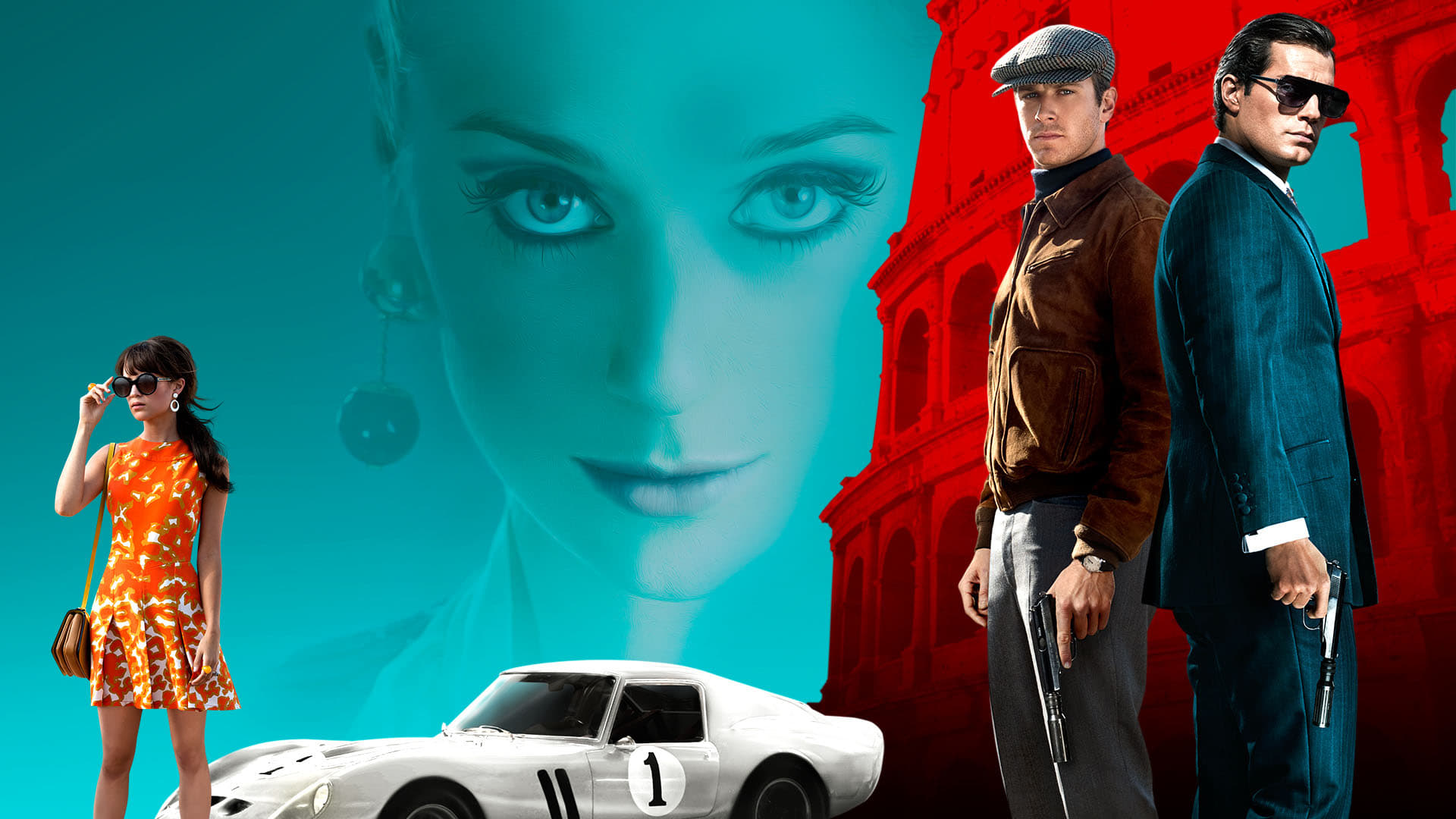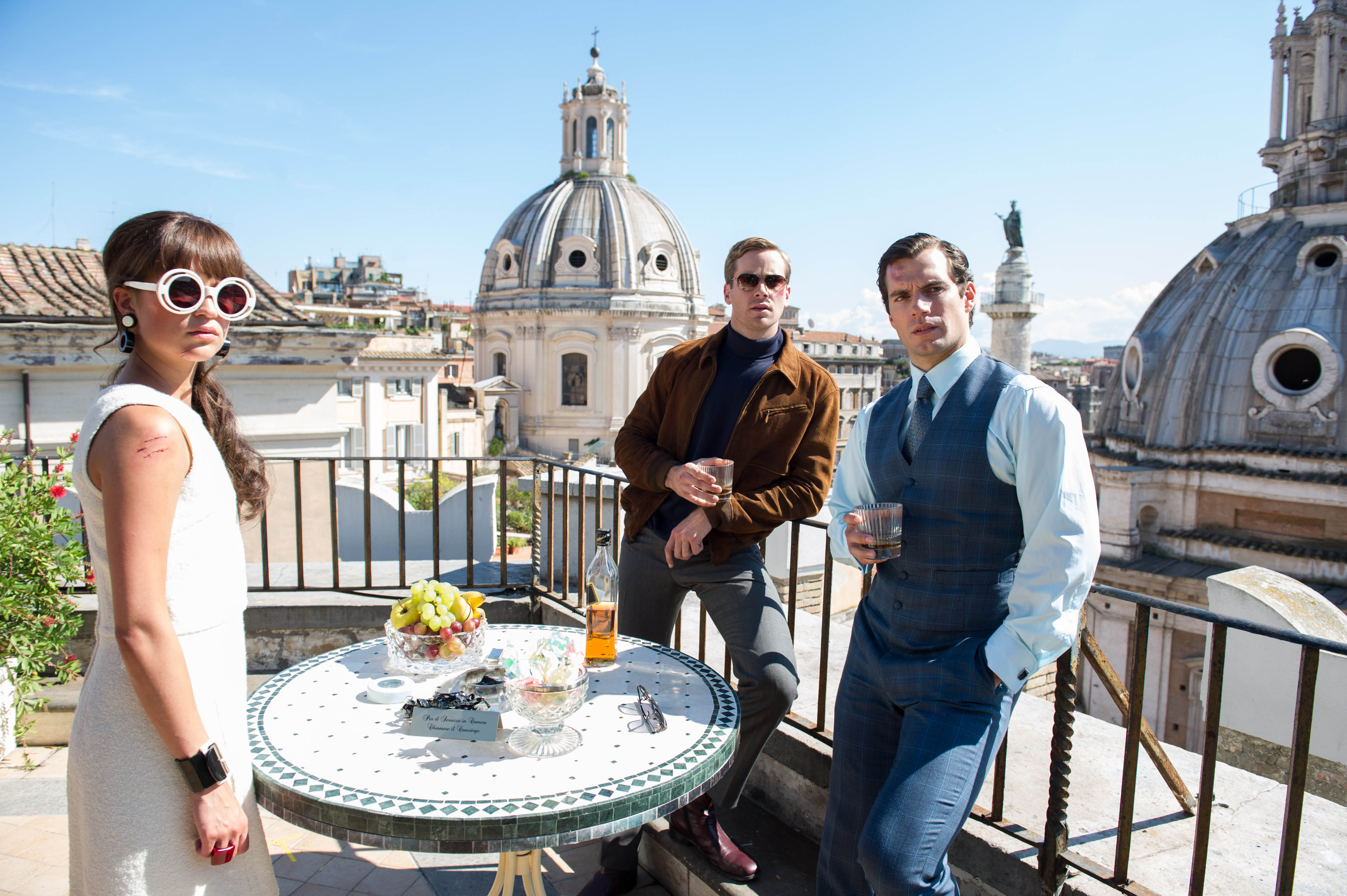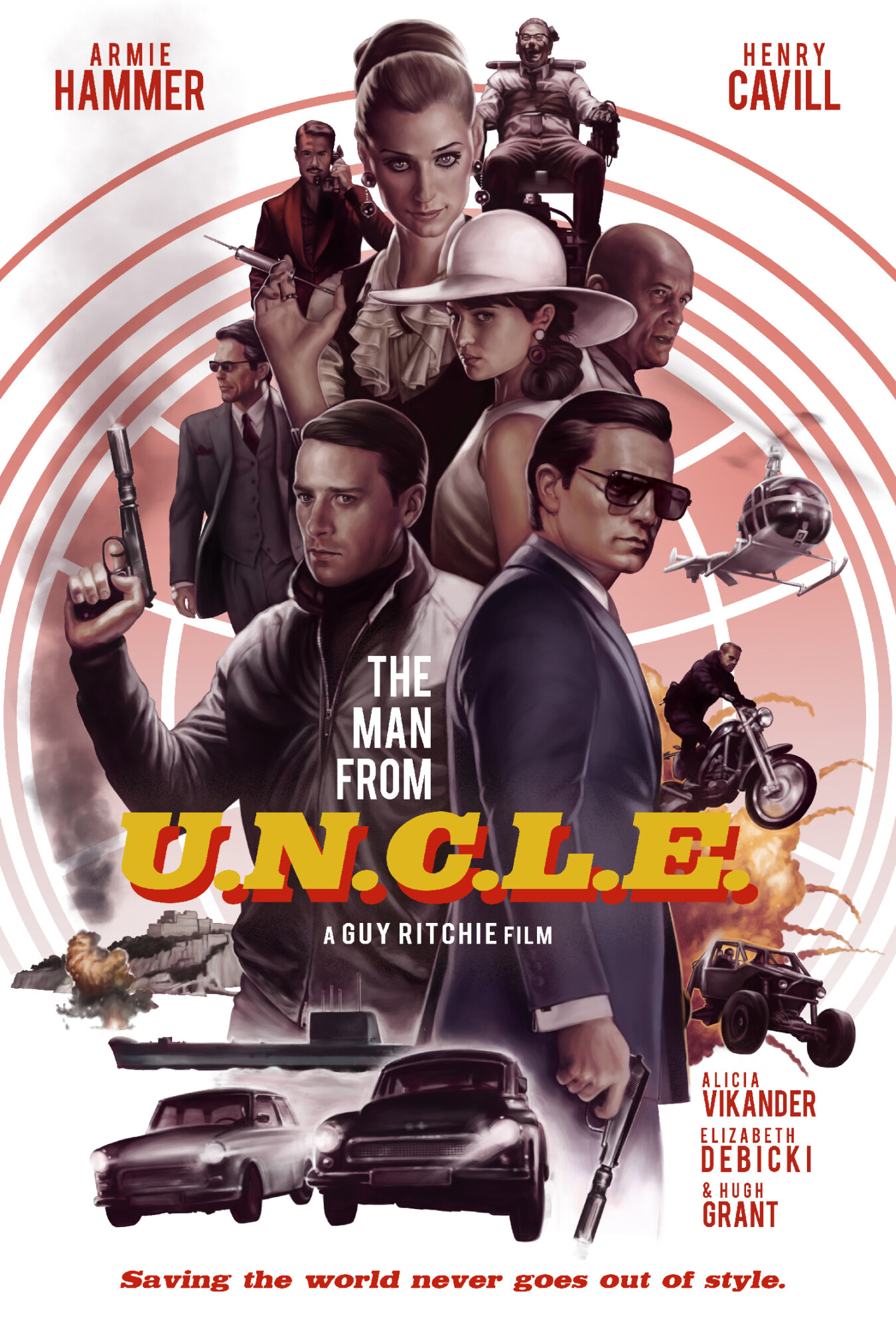The Man From U.N.C.L.E: A Retro Spy Adventure That Still Packs A Punch
When it comes to classic spy shows, "The Man from U.N.C.L.E" is a name that resonates with fans of espionage and adventure. First aired in the 1960s, this iconic series brought a unique blend of wit, action, and style to television. It’s not just a show; it’s a cultural phenomenon that continues to captivate audiences today. So, buckle up because we’re diving deep into the world of Napoleon Solo and Illya Kuryakin, two agents who made spy dramas cool.
Imagine a time when black-and-white TVs were transitioning to color, and the world was obsessed with secret agents and gadgets. That's where "The Man from U.N.C.L.E" thrived. Created by Samuel A. Peeples and Norman Felton, the series became a game-changer in the spy genre, blending humor, intelligence, and suspense in ways that audiences hadn’t seen before.
But why does it still matter? Well, "The Man from U.N.C.L.E" isn’t just about its groundbreaking storytelling. It’s also about the characters, the era, and the timeless appeal of a good old-fashioned spy thriller. So, whether you’re a die-hard fan or someone who’s curious about what all the fuss is about, this article will take you on a journey through the history, impact, and legacy of "The Man from U.N.C.L.E."
Read also:Rick Hoffman Movies And Tv Shows A Journey Through The Stars
Table of Contents
- Biography of the Show
- Main Characters: Who Are They?
- The Show's Impact on Pop Culture
- Key Themes in the Series
- Production Details You Need to Know
- Behind the Scenes Secrets
- Fan Reception Over the Years
- Revival Efforts and Modern Adaptations
- The Legacy of U.N.C.L.E
- Conclusion: Why "The Man from U.N.C.L.E" Still Matters
Biography of the Show
From Concept to Screen
Let's rewind to the early 1960s when the world was in the midst of the Cold War. That’s when "The Man from U.N.C.L.E" was born. The concept was simple yet brilliant: two agents from different backgrounds teaming up to stop global threats. What made it unique? The chemistry between Napoleon Solo, played by Robert Vaughn, and Illya Kuryakin, portrayed by David McCallum. These characters weren’t just spies; they were icons.
The show premiered in 1964 and quickly became a hit. It ran for four seasons, airing a total of 105 episodes. Each episode was a thrilling adventure filled with intrigue, action, and, of course, those iconic gadgets. But what set "The Man from U.N.C.L.E" apart was its ability to balance humor with serious storytelling, making it appealing to a wide audience.
Main Characters: Who Are They?
Meet the Legends
At the heart of "The Man from U.N.C.L.E" are two unforgettable characters: Napoleon Solo and Illya Kuryakin. Here’s a quick rundown of who they are:
- Napoleon Solo: The suave American agent with a knack for charm and diplomacy. Think James Bond but with more heart.
- Illya Kuryakin: The brilliant Russian agent with a sharp mind and a no-nonsense attitude. He’s the brains of the operation, often outsmarting the villains.
Together, they form an unstoppable duo, tackling threats from the evil organization THRUSH. Their partnership is a testament to how differences can be strengths rather than weaknesses.
The Show's Impact on Pop Culture
When you think about spy shows, "The Man from U.N.C.L.E" is one of the first names that come to mind. It didn’t just entertain; it influenced an entire genre. The show’s success spawned a wave of spy dramas in the 1960s, proving that audiences were hungry for more than just cowboys and detectives.
But its impact goes beyond television. "The Man from U.N.C.L.E" inspired countless movies, books, and even video games. Its influence can be seen in everything from "Mission: Impossible" to "James Bond." It’s a show that truly left its mark on pop culture.
Read also:Metastream The Ultimate Guide To The Future Of Streaming
Key Themes in the Series
Every great show has themes that resonate with its audience, and "The Man from U.N.C.L.E" is no exception. Here are some of the key themes that make the series timeless:
- Friendship and Trust: The bond between Napoleon and Illya is at the core of the show. It’s a reminder that even in the most dangerous situations, having someone you can rely on makes all the difference.
- Good vs. Evil: The battle against THRUSH is more than just a plot device. It’s a metaphor for the real-world struggles between good and evil, making the series relevant even today.
- Cultural Exchange: With a Russian and an American working together, the show promoted understanding and cooperation between nations, especially during the tense Cold War era.
Production Details You Need to Know
Behind the Camera
Producing a show like "The Man from U.N.C.L.E" wasn’t easy. It required a lot of creativity, especially when it came to special effects and set design. The team behind the scenes worked tirelessly to bring the world of U.N.C.L.E to life. From the iconic gadgets to the sleek cars, every detail was carefully crafted to enhance the viewing experience.
One interesting fact is that the show was shot on a tight budget, yet it never compromised on quality. This speaks volumes about the dedication and talent of the production team. It’s a testament to what can be achieved with vision and passion.
Behind the Scenes Secrets
Every successful show has its secrets, and "The Man from U.N.C.L.E" is no different. Did you know that the chemistry between Robert Vaughn and David McCallum wasn’t just acting? The two actors became close friends during the show’s run, which added authenticity to their on-screen partnership.
Another fun fact is that some of the gadgets used in the series were real prototypes. The show’s creators had connections in the tech industry, allowing them to use cutting-edge technology long before it hit the market. This added a layer of realism that viewers loved.
Fan Reception Over the Years
When "The Man from U.N.C.L.E" first aired, it was an instant hit. Fans couldn’t get enough of the thrilling adventures and the charismatic characters. But as the years went by, the show’s popularity waned, partly due to changing tastes and the rise of new genres.
However, the series has experienced a resurgence in recent years, thanks to streaming platforms and nostalgia. Fans old and new are rediscovering the magic of "The Man from U.N.C.L.E," proving that great stories never go out of style.
Revival Efforts and Modern Adaptations
With the growing interest in classic shows, it’s no surprise that there have been efforts to revive "The Man from U.N.C.L.E." In 2015, a movie adaptation starring Henry Cavill and Armie Hammer was released, bringing the series to a new generation. While it received mixed reviews, it reignited the conversation about the show’s legacy.
There are also rumors of a potential TV reboot, though nothing official has been announced. Fans are hopeful that a modern take on the series will do justice to its rich history while appealing to contemporary audiences.
The Legacy of U.N.C.L.E
As we look back at "The Man from U.N.C.L.E," it’s clear that its legacy extends far beyond its original run. It’s a show that paved the way for countless others, influencing everything from storytelling to character development. Its impact on pop culture is undeniable, and its themes remain relevant today.
What makes "The Man from U.N.C.L.E" truly special is its ability to connect with audiences across generations. Whether you’re a fan of classic TV or just appreciate a good spy story, there’s something for everyone in this iconic series.
Conclusion: Why "The Man from U.N.C.L.E" Still Matters
So, there you have it—the story of "The Man from U.N.C.L.E." From its humble beginnings to its lasting legacy, this show has left an indelible mark on the world of entertainment. It’s not just about spies and gadgets; it’s about friendship, trust, and the power of teamwork.
As we wrap up, I encourage you to watch or rewatch the series. It’s a reminder of a time when television was more than just a form of entertainment—it was a cultural phenomenon. And who knows? You might just find yourself hooked all over again.
Don’t forget to share your thoughts in the comments and check out other articles on our site. Together, let’s keep the spirit of U.N.C.L.E alive!
Article Recommendations


